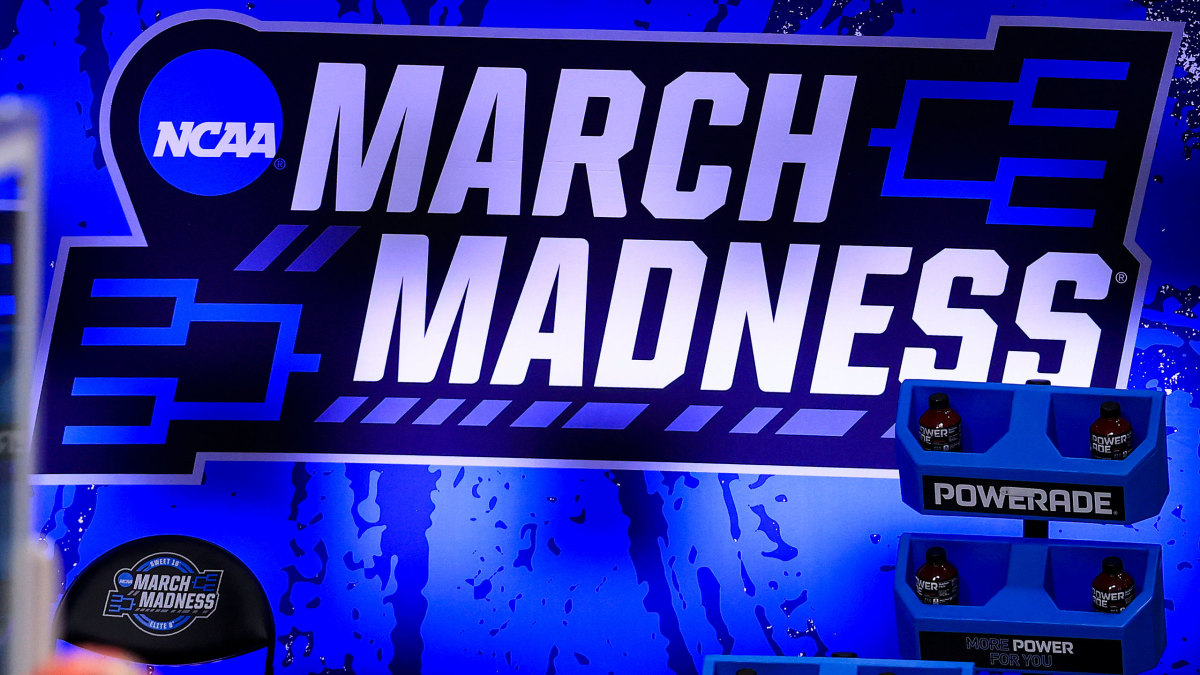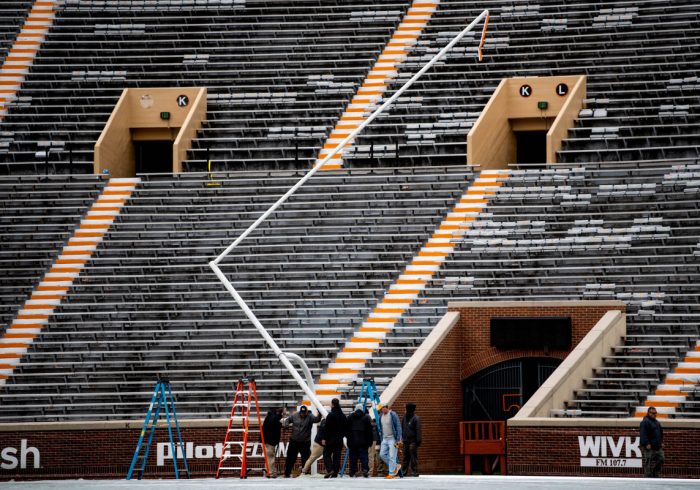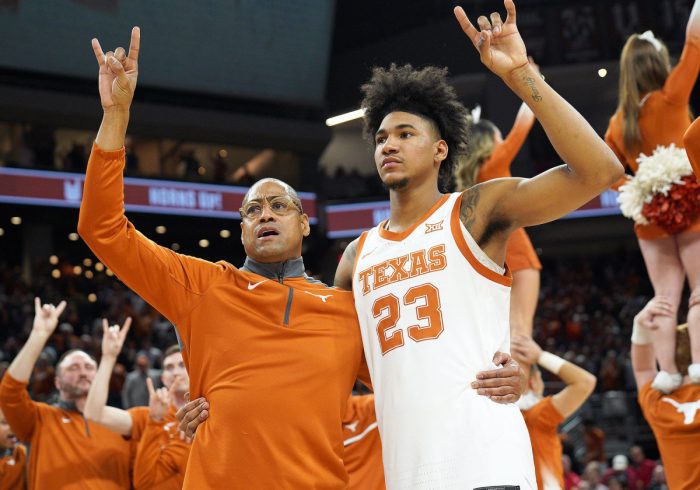NCAA postseason championships, including the NCAA men’s and women’s basketball tournaments, would be expanded under recommendations made by the NCAA transformation committee.
After nearly a year’s worth of meetings, the transformation committee, charged with reshaping archaic NCAA policies, produced a 40-page final report that was released Tuesday to selected media members. The report will go to the Division I board of directors for consideration at the 2023 NCAA convention in San Antonio next week.
Among the many recommendations is incorporating more teams in NCAA postseason championships. The NCAA should consider expanding championship brackets to accommodate access for 25% of participating teams in the sport, the committee’s report notes.
The NCAA men’s and women’s basketball tournament encompasses 68 teams, or about 19% of the sport’s 350-some active members. The tournaments would have to expand by about 20 teams—incorporating around 90 total teams—to reach the 25% mark.
The transformation committee’s recommendation is not an official change. Most recommendations will be determined by the individual oversight and governance groups of a particular sport. On the topic of expanding championship events, an initial review by committees will happen by June 2023 and final recommendations will take place by January 2024 for implementation in the 2024–25 championship, the report says. Transformation leaders including co-chairs Greg Sankey, the SEC commissioner, and Julie Cromer, the Ohio athletic director, will speak to reporters later Tuesday.
The committee’s report offers a wide range of recommendations, most of them requiring Division I schools to offer more benefits to athletes. For now, roster limits and scholarship limits are not changing. There is also no change to football countable coaches. The committee recommended a review of those categories. Here are some of the highlights of the recommendations, which are split into categories:
Athletes benefits
- Require all Division I schools to provide medical coverage for athletically related injuries for a minimum of two years following graduation or the completion of participation. The recommendation says that a national coverage model might be needed to help some programs cover costs.
- Require schools to offer athletes who were on full scholarship the ability to return to school within 10 years of leaving to complete their degree
- Require schools to attest that they provide career counseling and life skills programming to athletes including, at minimum, the following modules: mental health; strength and conditioning; nutrition; name, image and likeness (NIL); financial literacy; transfer requirements; career preparation; diversity, equity, inclusion and belonging; and campus sexual violence prevention.
- Create a new D-I governance structure that will include increased participation by athletes at the campus, conference and national levels.
Membership expectations
- Further involving athletes to be part of conference and school-level governance, which includes creating an athlete advisory committee executive team for each league
- Schools must have on staff a licensed mental health professional exclusively dedicated to serving athletes to meeting the mental health services membership expectation.
- Schools shall complete a comprehensive review of its health and safety support services at least once every four years and provide written confirmation of completion to its conference office.
- Schools should have medical personnel with training in acute concussion and other injuries present at all NCAA practices and competitions in the following contact/collision sports: acrobatics and tumbling; Alpine skiing; baseball; basketball; beach volleyball; diving; equestrian; field hockey; football; gymnastics; ice hockey; lacrosse; pole vault; rugby; soccer; softball; volleyball; water polo; wrestling.
- Schools must employ at least one full-time staff member, with appropriate training, whose primary focus is on diversity, equity, inclusion and belonging.
- The committee recommends a review of the FBS attendance requirements to “establish more effective distinctions between the football subdivision.”
- Sports-sponsorship minimums will remain the same. D-I members must sponsor at least 16 sports.
- The committee recommends a review of scholarship limitations “once the impact of changes in other areas of the transformation committee’s review become known.”
Governance
- Eliminate the NCAA Presidential Forum, which assists the NCAA D-I board of directors in “accomplishing its strategic mission in the Division I governance structure and helps ensure that the NCAA core value involving presidential leadership of intercollegiate athletics at the campus, conference and national level is achieved,” according to the NCAA website. The forum is comprised of one president or chancellor from each of the 32 D-I Conferences.
- Change the composition of the D-I Board of Directors, details of which will be finalized by April, according to the report.
- The committee recommends that D-I championship tournaments seed at least 50% of the bracket.
- Each sport that holds an NCAA championship should have its own oversight committee for decision-making, as football and men’s and women’s basketball currently have.
- A full review of NCAA championship travel policies “to identify ways to elevate the travel experience for participants,” including: (1) increase per diem rates equal to D-I basketball preliminary rounds; (2) standardize the process and fee structure for upgrading to charter air travel; (3) guaranteeing charter air travel for teams traveling over 2,000 miles and no direct flight options
- The committee also recommends a review of (1) the revenue distribution model; (2) financial aid and roster size; (3) countable coaches and the definition of countable coaches; (4) the role of sports agents; and (5) the playing and practice seasons.



